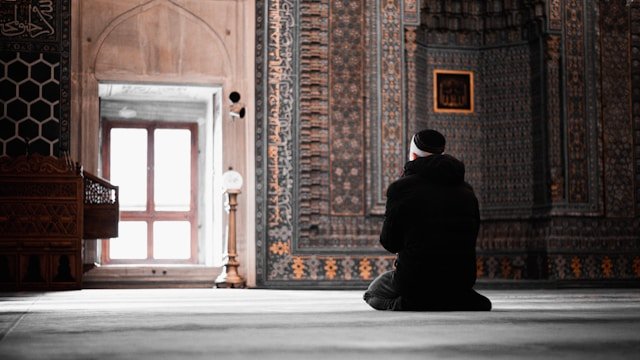Ishraq Time in Sharjah: Your Guide to This Simple Spiritual Boost
Have you ever witnessed that golden sliver of morning when the sun breaks the horizon of the Gulf and the skyline of Sharjah glows? The air is alive with the last echo of a Fajr prayer, and suddenly a window is opened for something additional – a voluntary prayer called Ishraq, which brings a great deal of peace and promise. In the city, where life begins early with the souk or market awakening and commuters on their journey to work, performing this short ritual can feel like seizing a secret advantage on the day. Ishraq is not obligatory, but for those who pursue it, the benefits are abundant – forgiveness, eleven years of good deeds, and a lighter heart before the world picks up in intensity.
This article provides comprehensive information on everything related to Ishra (the prayer time): its background, details of the timing, how to incorporate it into your schedule, and importantly, why it works so well in this corner of the UAE. Stay tuned to discover how this little practice can lift a simple morning into something sanctified.

What is the Ishraq prayer? Here is a quick breakdown of the basics.
Ishraq, also known as Chasht or the follow-up sunnah of Fajr, is one of the easiest supererogatory prayers in Islam. It takes place immediately after sunrise when the sun rises a spear’s length above the horizon, which is about 15 minutes after the break of dawn has fully occurred. Just imagine two rak’ahs, light and short, not heavily worded like the fard rak’ahs.
And scholars pull this from solid hadiths: Abu Hurairah relates that the Prophet Muhammad-peace be upon him-said, “Whoever performs Fajr in congregation, then sits remembering Allah until the sun has risen, then he prays two rak’ahs, will have a reward like that of Hajj and Umrah.” Another narration from Tirmidhi promises that “the one who prays Salat al-Ishraq will have a reward as if he has fasted for the whole day.” It’s like a morning multiplier: effort small, payoff huge.
In Sharjah, where people from different corners of the world blend in, Ishraq attracts all, from office workers in Al Khan to families in Al Taawun. No mosque required; a quiet corner at home works fine. The catch: timing is of the essence, miss that post-sunrise slot, and it slips away till tomorrow.
Why Ishraq Fits Sharjah’s Fast-Paced Life Perfectly
Sharjah pulses with energy starting well before the sun does. Visualize the corniche paths filling with joggers, souks getting ready for the day, and the call to Fajr still lingering from minarets such as the iconic ones at Al Noor Mosque. In a culturally deep, family-focused emirate like this, Ishraq acts like a natural pause-point: short enough to fit into a busy schedule yet profound enough to reset intentions.
Locals and expats alike lean on it for stress relief as work demands rise. A 2024 survey by the Awqaf Department counted a 25% increase in voluntary prayers, such as Ishraq, post-Ramadan, as many cited better focus and calmer commutes to hubs such as Sharjah University or the Expo Centre. Adding to that, the UAE’s sunny reliability-the clear sky well-nigh every day-makes that post-sunrise glow an invitation day after day. It is not about perfection; even a rushed version at your desk counts, provided the niyyah holds.
Calculating Ishraq Time: How It Works in Sharjah
Pinpointing Ishraq begins at sunrise then adds about 12-15 minutes. Sharjah is located at latitude 25.35°N and longitude 55.39°E, right in a subtropical zone where the days are long and the sun rises rather early throughout the year.
The math involves some Islamic astronomy: Sunrise occurs when the upper limb of the sun touches the horizon, allowing for refraction-about 0.83° depression angle. Ishraq starts after it has risen above that “spear’s length”-scholars differ on what height exactly amounts to 18-22 cubits, or 30-40 minutes according to some interpretations. Calendars in most of the UAE adopt 15 minutes as a practical threshold.
Tools make it foolproof. The UAE’s Awqaf, or General Authority of Islamic Affairs and Endowments, provides official timings via their app and website; it factors in local coordinates and Hijri adjustments. For precision, apps such as Muslim Pro or Al-Adhan fetch astronomical data, syncing with your GPS. You can expect variations in Sharjah: winter sunrises at about 6:45 AM shift Ishraq to 7:00 AM, while summer ones at about 5:30 AM shift it to 5:45 AM.
One heads-up: Maghrib times can tweak due to the emirate’s eastern tilt versus Dubai’s, but for Ishraq, it’s straightforward: always check daily; even a minute off keeps the barakah flowing.
Ishraq Timings in Sharjah: A Seasonal Rundown
Sharjah’s weather pendulums between warm winters and hot summers. The sudden change nudges sunrise and hence Ishraq at different hours of the day. Herein is a snapshot based on Awqaf data with Gregorian dates for ease-always cross-check for Hijri shifts.
Winter, or between November and February, has shorter days and thus later starts. On November 2, 2025, at sunrise of 6:06 AM, Ishraq is kicked off at approximately 6:21 AM; by December’s peak chill, it will slide further to 6:40 AM sunrise, 6:55 AM Ishraq. Just perfect for lingering under those blankets a tad longer before that post-Fajr dhikr.
Spring runs from March to May and brings the flip. The sunrise on the March 21 equinox is at 5:55 AM, while Ishraq is at 6:10 AM. In May, as it gets warmer, that would be earlier–starting at 5:25 AM for sunrise and Ishraq at 5:40 AM–just when many Muslims seem to prefer the cooler hours just before the morning prayer at places of worship like Bin Haider Mosque.
Summer dominates June through August, with the earliest sunrises. July 1? 5:24 AM up, Ishraq 5:39 AM. Humidity peaks, but that early light filters through date palms, making rooftop prayers at Al Mamzar a treat.
Fall (September to October) paralleled the ease of spring. The sunrise at 5:50 AM in September yields Ishraq at 6:05 AM, winding down to the 5:55 AM slot in October.
These are averages-cloudy days or DSTs (none in UAE since 1988) don’t factor in, but apps adjust live. Pro move: Set calendar reminders tied to your location for zero guesswork.
Step-by-Step: Performing Ishraq Prayer the Easy Way
Ready to try? Ishraq keeps it minimal, two rak’ahs, like a bonus to your Fajr.
Finish Fajr first, then sit in dhikr or the Quran until sunrise. This builds the chain of congregation to sunrise for maximum reward.
Wait the Window: Once the sun clears the horizon-no praying directly at it-stand up. Aim for 15 minutes post-sunrise to stay safe.
Niyyah & Start: Intend in one’s heart, “I pray two rak’ahs Ishraq for Allah.” Begin with Takbir Tahrimah, followed by reciting Fatiha and another short surah, for example, Al-Ikhlas, in each rak’ah.
Keep It Flowing: First rak’ah: Ruku, sujud, sit for Tashahhud briefly? Nah, flow straight into the second. End with full Tashahhud and salam.
Seal with Dua: Add here your personal supplications; ask for ease in Sharjah’s hustle, for family health, or that promotion.
Takes less than five minutes. If you are out at work early, as in Muwaileh’s industrial area, a car prayer spot works: no judgment, just sincerity.
Real Rewards: What Hadiths Say About Ishraq’s Power
Don’t just take the word ” Prophetic ” sayings seal Ishraq’s appeal. Aisha (may Allah be pleased with her) reported that the Prophet said, “The two rak’ahs of Fajr are better than the world and all it contains.” Layer on Ishraq, and it’s amplified.
From Muslim’s collection: “Whoever prays the two rak’ahs of Ishraq, Allah writes for him the reward of a Hajj and Umrah.” Tirmidhi adds fasting equivalence, while Ibn Majah ties it to lightened grave trials. Modern takes? Studies from Islamic University of Madinah link such routines to lower cortisol, sharper memory—fitting for Sharjah’s student-heavy vibe.
It’s forgiving too: Late by a few minutes? Still counts. Missed Fajr dhikr? Jump in post-sunrise anyway. The door stays open.
Tips and Common Mix-Ups to Dodge in Sharjah
Sharjah’s mix of cultures raises some questions; here is the fix:
App Overload? Stick to Awqaf’s official one; others vary by madhhab: Hanafi waits longer than Shafi’i.
Travel Tweaks: On a Gulf road trip? Adjust for new coords—Sharjah to Fujairah adds 10 minutes.
Women at Home: No problem; pray wherever safe. Many in Al Majaz neighborhoods share Ishraq’s group via WhatsApp circles.
Forgetful Mornings: Alarm for Fajr, second for Ishraq. Keep track of streaks in a journal for that motivation boost.
Do not pray during the exact time of sunrise; it’s haram, similar to prayer at the time of the eclipse. Remember, quality trumps quantity. Rushed hearts don’t fly.
Conclusion
Catch That Morning Light in Sharjah Ishraq time in Sharjah boils down to the golden opportunity, 15 minutes that bridge night’s quiet into day’s demand, offering rewards which echo across your week. From winter’s cozy 6:20 AM slots to summer’s brisk 5:40 AM calls, it is always within reach, attuned with the rhythm of this emirate. Download the Awqaf app, mark your calendar, and step into those first rays. In a place like Sharjah, where heritage meets hurry, Ishraq isn’t extra; it is essential. Start tomorrow; the sun waits for no one, but its blessings? Those linger all day.









